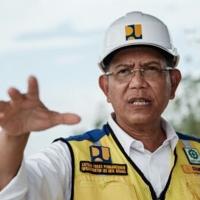Indonesia’s capital-to-be, Nusantara, carved out of dense jungle in Borneo, is facing delays just weeks before its scheduled opening. The city, intended to be the jewel in the crown of President Joko Widodo’s 10-year tenure, is currently a vast building site with unfinished buildings and bumpy access tracks. The inauguration on August 17, Indonesia’s Independence Day, is now uncertain due to construction delays, funding issues, and the reluctance of potential residents to relocate.
President Widodo acknowledged the challenges during a recent visit to the site, emphasizing that the development of Nusantara is a long-term project spanning decades. While the city will still play a significant role in independence celebrations, the official decree for the capital’s relocation may be postponed until after Widodo’s successor, Prabowo Subianto, assumes office on October 20.
The decision to move the capital from sinking Jakarta to Borneo was made in response to warnings from experts. The first phase of Nusantara, planned to accommodate the president, ministers, and civil servants, was expected to be operational by now, but progress has been slower than anticipated. Despite claims of being 80% complete, some officials estimate that the first phase is only around 20% finished.
Construction workers are under pressure to meet deadlines, with challenges such as extreme weather conditions hindering progress. The city has also struggled to attract foreign investment, relying heavily on domestic funding. Experts believe that foreign companies are hesitant to invest in a project located in a rainforest ecosystem with rich biodiversity, such as orangutans and long-nosed monkeys.
The reluctance of over 10,000 civil servants ordered to relocate to Nusantara further complicates the situation. Many employees are concerned about the inadequate facilities and the uncertainties surrounding their lives in the new city. Despite offers of special allowances and moving costs, the government is facing resistance from its workforce.
The completion of Nusantara and its successful transition into the new capital remain uncertain, raising questions about the future of the city and its role in Indonesia’s development.





